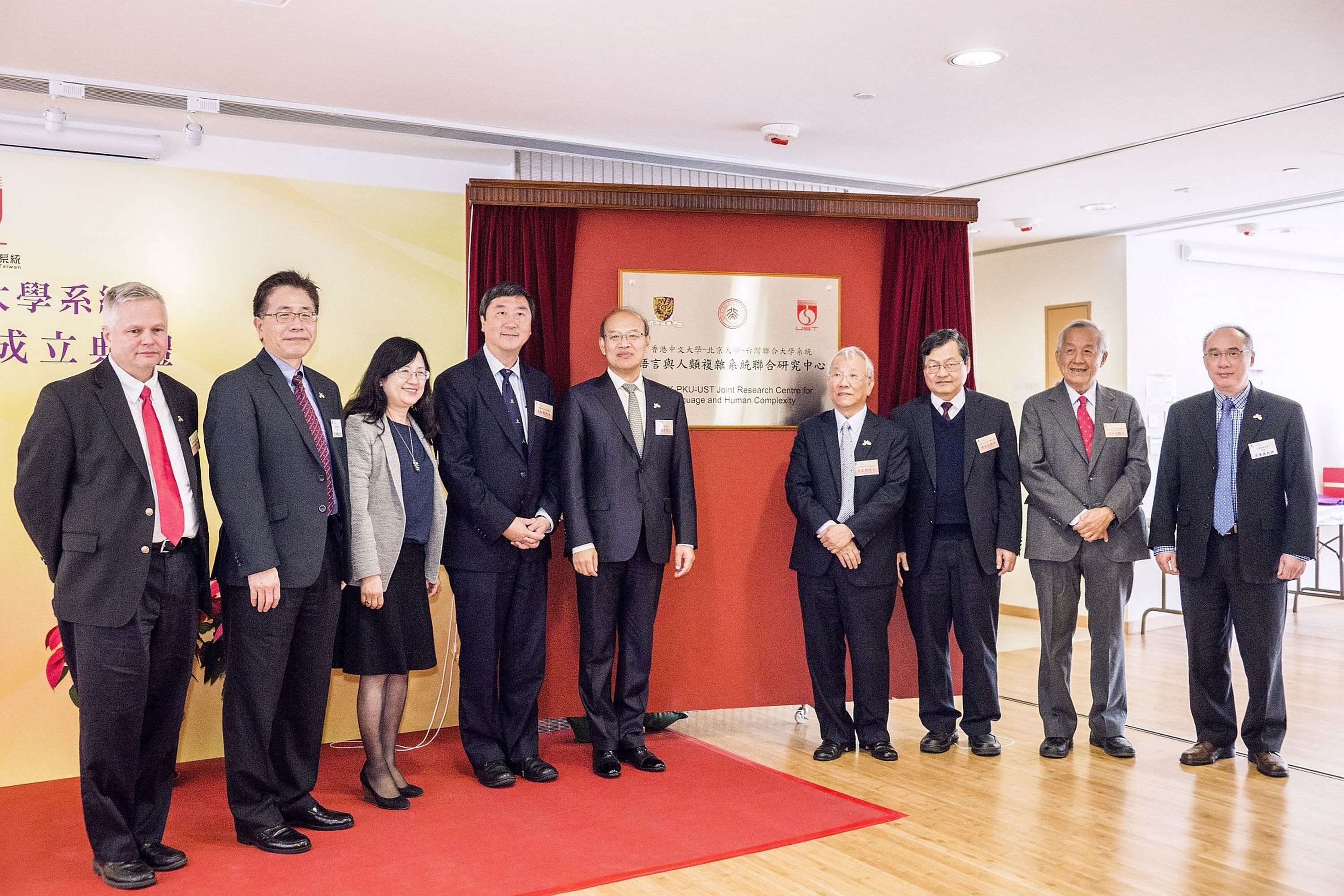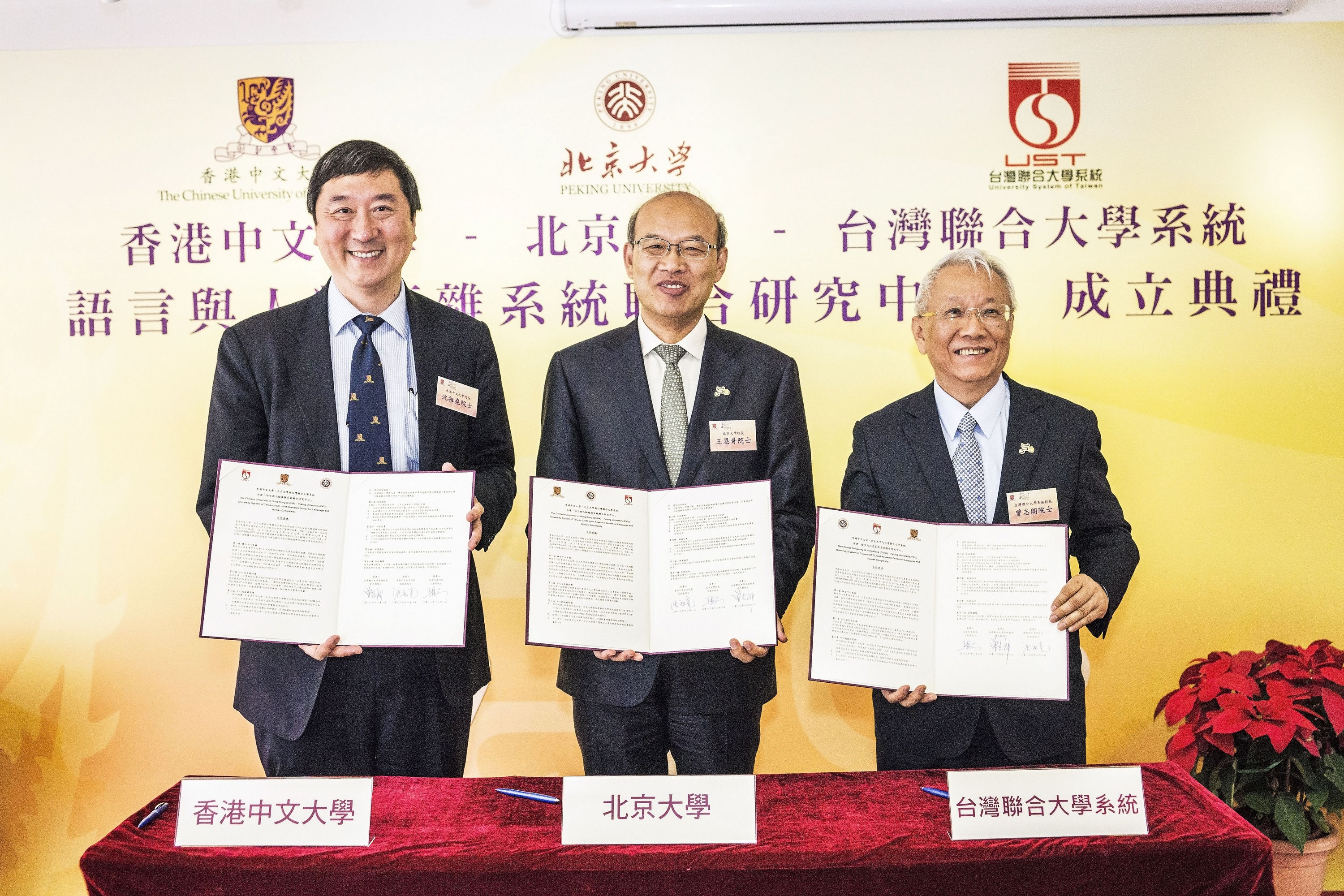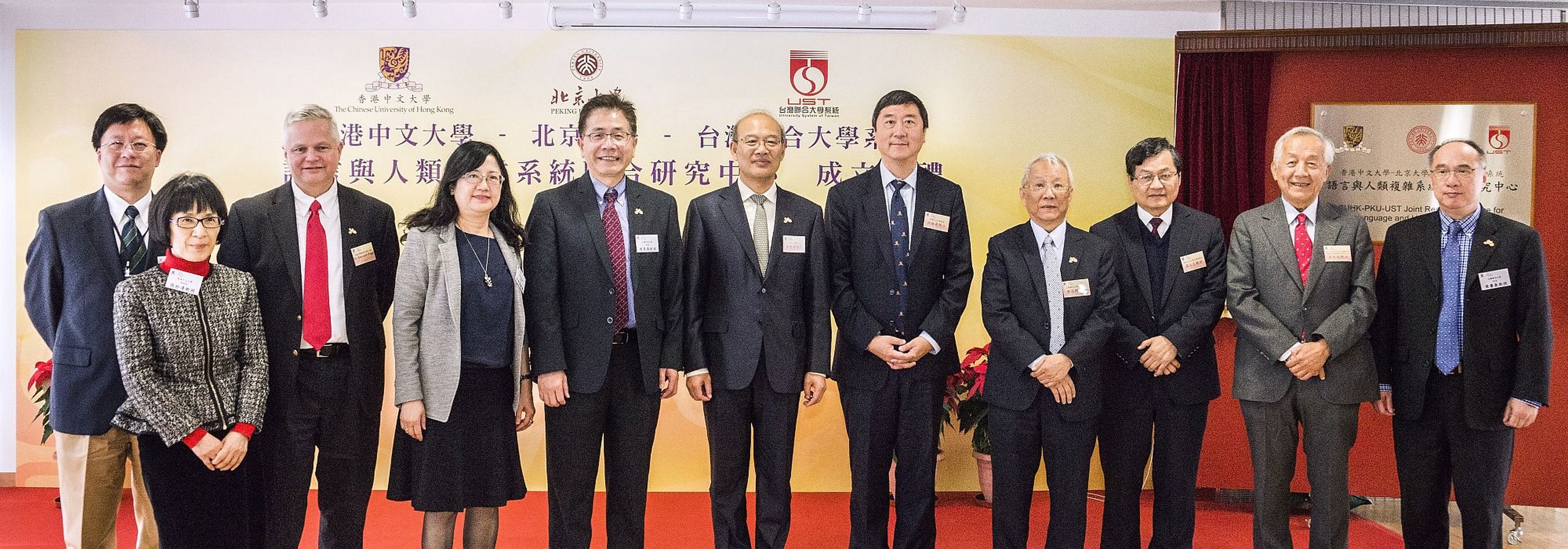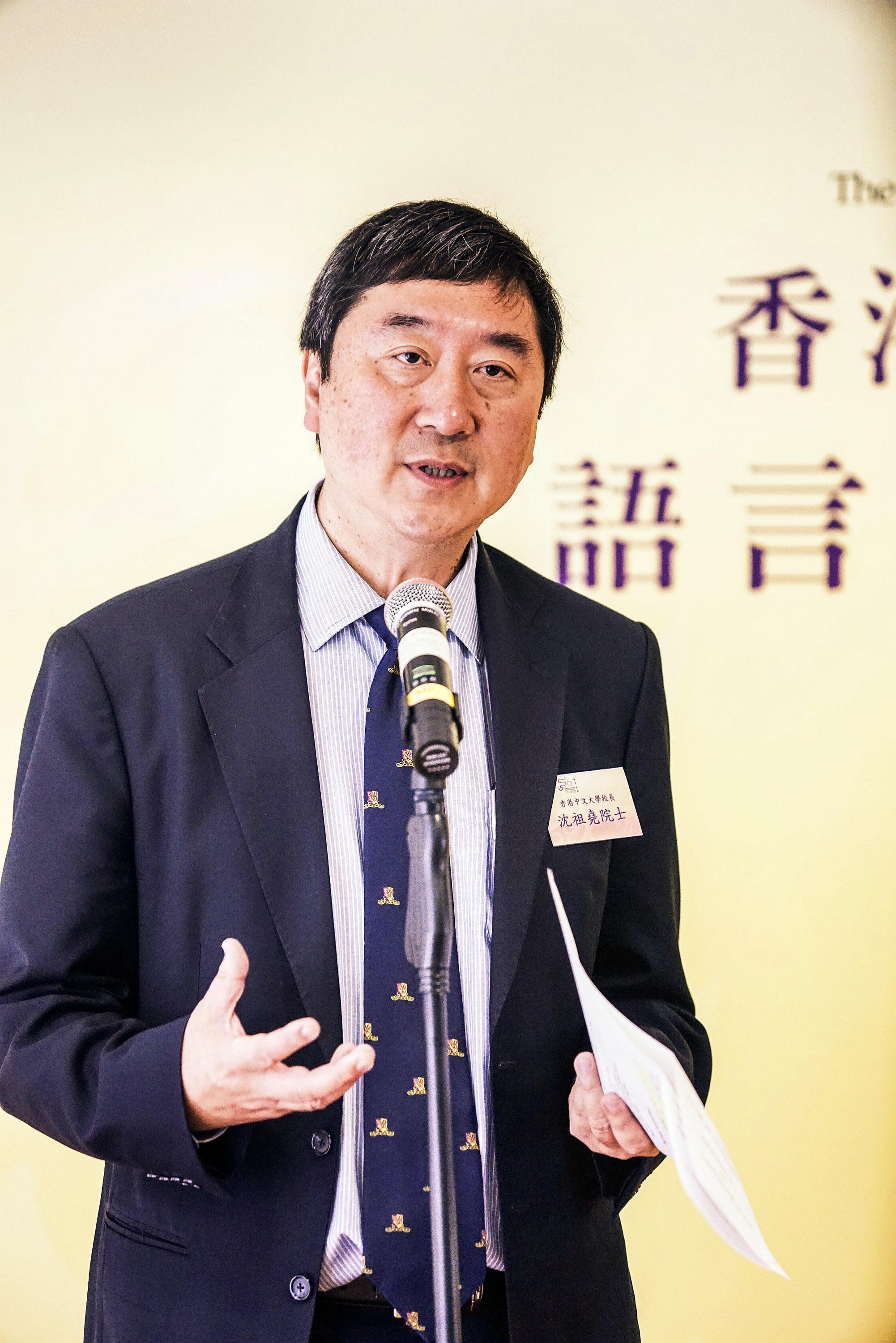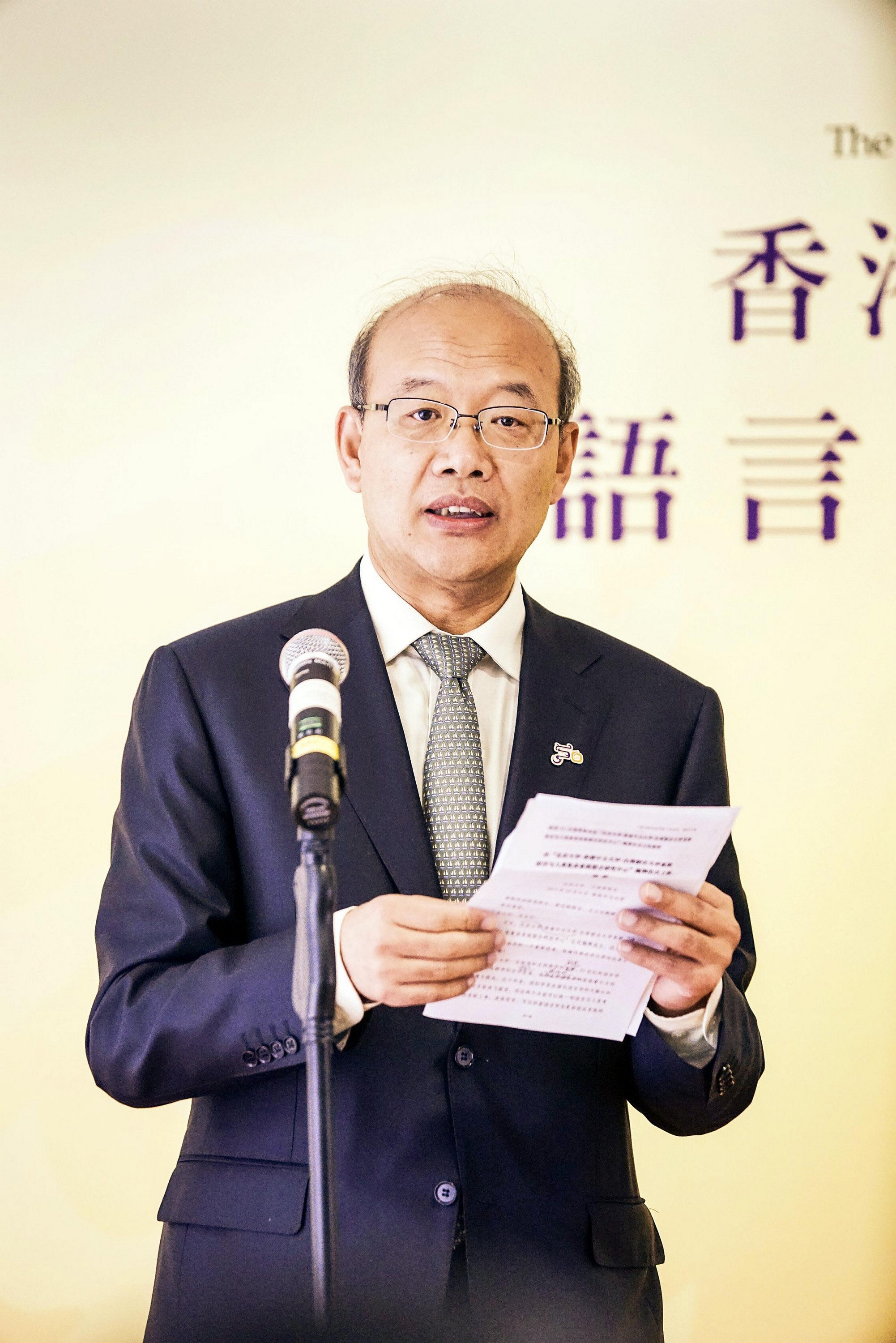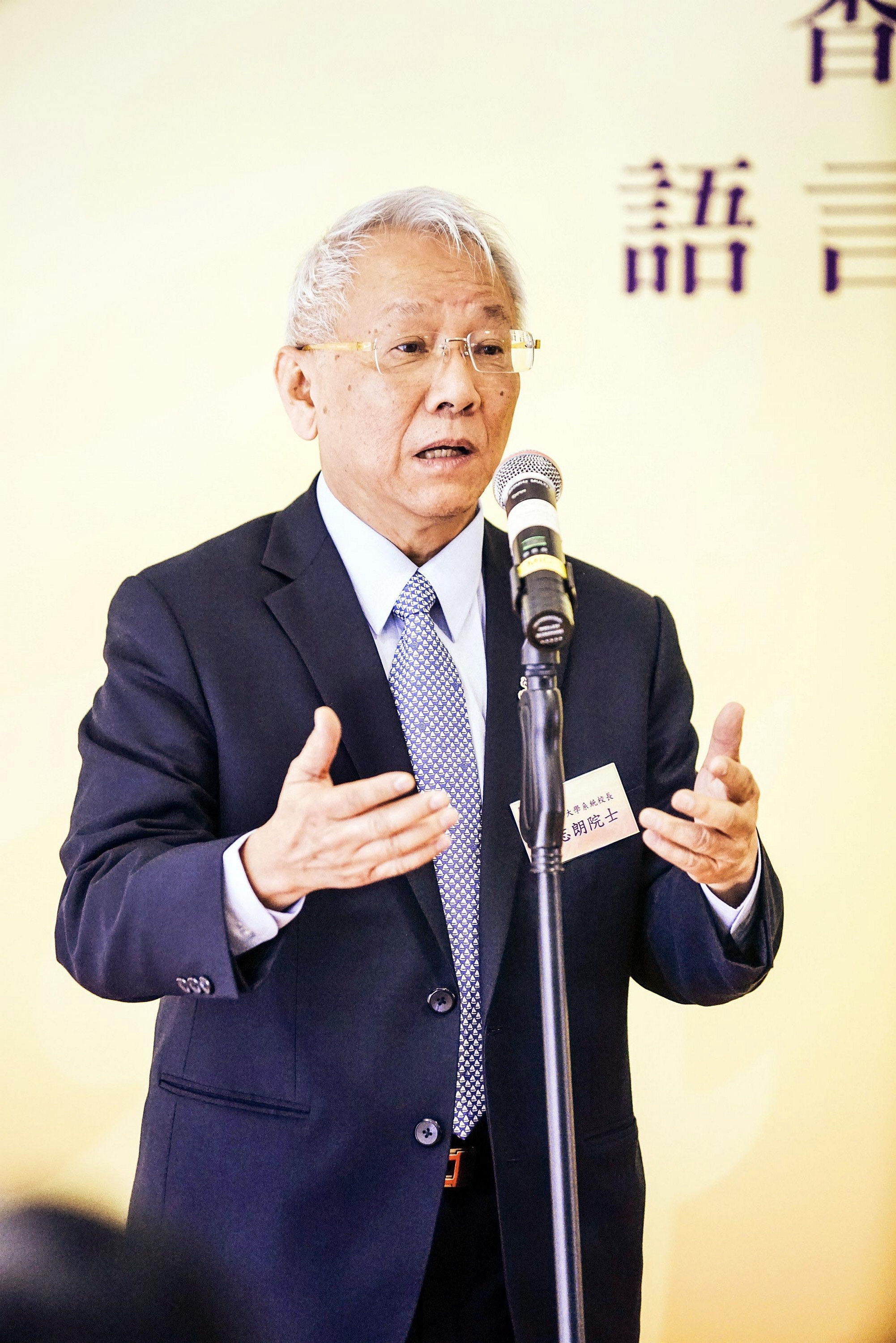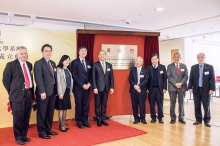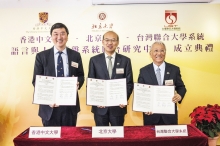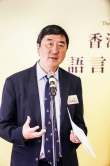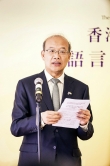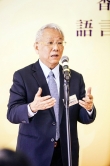CUHK
News Centre
Inauguration of The Chinese University of Hong Kong–Peking University–University System of Taiwan Joint Research Centre for Language and Human Complexity
The Chinese University of Hong Kong, Peking University, and University System of Taiwan has jointly established ‘The Chinese University of Hong Kong–Peking University–University System of Taiwan Joint Research Centre for Language and Human Complexity’. The inauguration ceremony of the Joint Research Centre was held at The Chinese University of Hong Kong (CUHK) recently. As a new platform of collaboration, the Centre is the first cross-strait joint research Centre to examine human complexity from the perspective of language. Prof. Wang Enge, President of Peking University; Prof. Ovid Tzeng, President of University System of Taiwan (UST); and Prof. Joseph Sung, Vice-Chancellor and President of CUHK, officiated at the ceremony.
The Joint Research Centre will develop cross-institution research, share resources and exchange experience in human complexity with respect to various Chinese languages to boost academic standards and innovation. Professor Sung said, ‘The Centre is the first cross-strait and cross-discipline research base in CUHK, showcasing a joint effort of three partner institutions. We aspire to serve as a bridge to enhance academic exchange and promote research development in language in the Greater China region.’
Scholars from Peking University, UST and CUHK have been collaborating closely for the past years in promoting the development of language studies. Riding on such strengths, the joint Centre is established to further enhance the partnership of the three universities in the areas of language and human complexity, constructing a more systemized and solid research base across the strait. The joint Centre will conduct field work and laboratory experiments to examine the nature of human, aiming to deepen our understanding of the biological basis of language and the acquisition of native language and second languages, and to further assist in the treatment of language disorders such as aphasia, alexia, languages degradation along aging.
The Joint Research Centre for Language and Human Complexity is located at the Tsang Shiu Tim Building at CUHK. It will operate under an international Advisory Board, chaired by Academician William Shiyuan Wang, Research Professor in the Faculty of Arts and Department of Electronic Engineering at CUHK. Professor Wang, a longtime advocate of trans-disciplinary research, said, ‘The establishment of the Joint Research Centre has great historical significance; it is a major milestone for developing leading edge research on language in Greater China.’
Presidents of the three universities signed the agreement of the Joint Research Centre and were joined by Prof. Kenneth Pugh, Director of Haskins Laboratory, USA; Prof. Jing-Yang Jou, President of Taiwan Central University; Prof. Yan-Hwa Wu Lee, President of Taiwan Chiao Tung University; Prof. Kung-Yee Liang, President of Taiwan Yang Ming University; Prof.Leung Yuen Sang, Dean of Faculty of Art, CUHK; and Prof. William Shiyuan Wang of CUHK at the plaque-unveiling ceremony. Dozens of guests from Hong Kong, mainland China and Taiwan witnessed the historic moment. The establishment of the Joint Research Centre will strengthen ties between scholars of CUHK, Peking University and UST toward long and sustainable collaboration, and help bring the research development to new heights of excellence.
(From left) Prof. Kenneth Pugh, Director of Haskins Laboratory, USA; Prof. Jing-Yang Jou, President of Taiwan Central University; Prof. Yan-Hwa Wu Lee, President of Taiwan Chiao Tung University; Prof. Joseph Sung, Vice-Chancellor and President of CUHK; Prof. Wang Enge, President of Peking University; Prof.Ovid Tzeng, President of University System of Taiwan; Prof. Yuen-Sang Leung, Dean of Faculty of Art, CUHK; Prof. William Shiyuan Wang of CUHK; and Prof. Kung-Yee Liang, President of Taiwan Yang Ming University.


